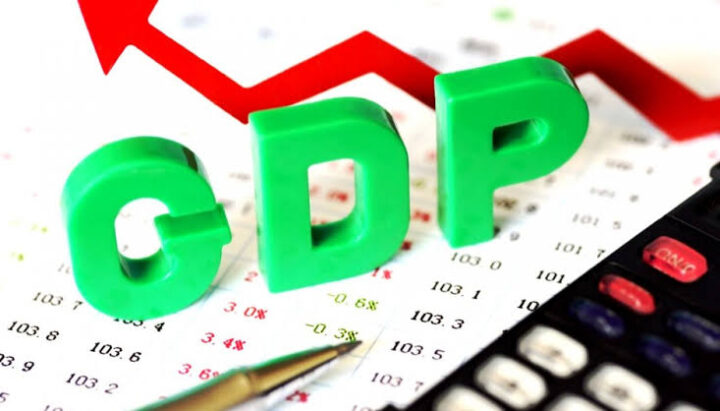According to the published GDP report released of recent by the National Bureau of Statistics (NBS), Nigeria’s Gross Domestic Product (GDP) grew by 5.01% (year-on-year) in real terms in the second quarter of 2021, marking three consecutive quarters of growth following the negative growth rates recorded in the second and third quarters of 2020.

Year to date, real GDP grew 2.7% in 2021 compared to -2.18% for the first half of 2020. However, quarter on quarter, real GDP contracted at 0.79% in Q2 2021 compared to Q1 2021, reflecting slightly slower economic activity than the preceding quarter largely due to the seasonality effect.
Nigeria’s Service Sector which makes up about 55.6% of GDP was the major reason for the growth, as the Trade Sector was the major driver of growth contributing about 64% to Nigeria’s growth rate. The Trade Sector which currently contributes about 16.66% of GDP rose by a whopping 22% in the second quarter of 2021, its fastest since at least 2016.
Despite the economic growth, which also is the fastest quarterly economic growth in over 5 years, Chief Executive Officer of Financial Derivatives Company Ltd, Mr Bismarck Rewane warned that Nigeria’s positive Gross Domestic Product has yet to have a significant impact on socio-economic conditions.
“Fastest growing sectors were the most impacted by the [COVID-19] shutdown. They are job-elastic and have the potential to boost productivity.
“Real GDP (2.7 per cent) is still below potential GDP (8.3 per cent). Economy still in a recessionary gap. Population (3.2 per cent) growing faster than GDP. Nigeria still the poverty capital of the world: 93.9 million people now live below the poverty line.
“Youth unemployment fast approaching 45%. Misery index, 50.68%. Nigeria [is] a hunger alert hotspot, according to FAO and WFP. Over 18,000 Nigerians seeking asylum. Health sector brain drain rising (e.g. about 500 doctors moving to Saudi Arabia),” he said.
Still, the GDP growth can be seen as the economy “healing” from a string of bad policies over the last few years that adversely affected the ease of doing business and investor confidence in Nigeria, such as the border closure, which was a major driver of food inflation and stifled cross-border trade between Nigeria and its other West African neighbours.
In particular, the closure (which the government has since jettisoned) affected Nigeria’s relations with Ghana, as Ghana’s Foreign Minister, Shirley Ayorkor Botchwey, said last year that Nigeria’s border closure in 2019 hurt Ghanaians and nearly bankrupted many Ghanaian export businesses after their goods were stuck at the Seme Border for months.
In a separate statement, the Ghanaian government said it imposed the $1 million levy on traders in the country, including Nigerians, due to certain steps that were taken by the Nigerian government including the border closure.
Following the recent GDP report, Nigeria’s Trade Minister, Niyi Adebayo assured investors that Nigeria’s recent economic numbers have also come with a few benefits, stating that the economy is showing signs of improvement and that foreign investors are making strong commitments.
“Investors from Europe, China, Morocco and the UK are making strong commitments and this administration is working tirelessly to ensure that these commitments turn into projects that positively affect our nation,” the Minister said.
The timing of the Minister’s comments couldn’t be more auspicious as Nigeria’s economic growth from 2015-2020 lost pace to other African nations with fewer Foreign Direct Investments flowing into the country.
According to Nairalytics, Nigeria’s economy averaged growth of just 0.70% from 2015 to 2020, compared to 8.43% averaged by Ethiopia for the same period. Nigeria did not make the top 10 growing economies in Africa for the period, as 10th place was the Niger Republic at 4.95%, while Nigeria was ranked 39th place in average GDP growth for the same period.
Ghana grew by 4.45% for the same period, while Kenya grew by an average of 4.62% for the same period. It’s a no-brainer that FDIs went to where they could find better comparative value.
Meanwhile, in the recently published Nigeria’s capital importation report for the first and second quarter of 2021, by the National Bureau of Statistics (NBS), it was revealed that Nigeria received a sum of $875.62 million foreign inflows in Q2 2021, representing a significant year-on-year decline, as foreign direct investment (FDI) fell to its lowest level in over 11 years.
FDI dropped to $77.97 million in Q2 2021, indicating a 49.6% and 47.5% decline compared to $154.76 million and $148.59 million recorded in the previous quarter and Q2 2020 respectively.
Source : Nairametrics
Support InfoStride News' Credible Journalism: Only credible journalism can guarantee a fair, accountable and transparent society, including democracy and government. It involves a lot of efforts and money. We need your support. Click here to Donate
